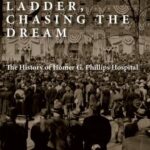


A Nonprofit Trying to Make Health Care Not a Choice Between Bankruptcy or Suicide
The word “stories” was used often at the annual NABIP Capitol Conference, held in the Hyatt Regency Capitol Hill, Washington, DC, February 25-28, 2024. I went because I have my own stories of frustration with health care, and because I am interested when someone seems ready to try to make things better in the largely incomprehensible and vaguely menacing system we all rely on.

Fat Chance
Rather than the elite not being held responsible for their actions because we are so consumed with self-loathing, it might be that fat people do get blamed for problems that have nothing to do with their bodies. This process of deflecting responsibility certainly has a long history.

Little Big Kids
Intervention is only the first step in addressing the epidemic of childhood obesity. Multi-sector approaches, including the healthcare system, schools, community organizations, and policy, must be developed to support obesity prevention and intervention services that can be tailored to individual needs and delivered across the lifespan.

The Rise and Fall of Homer G. Phillips Hospital, Another View
The story reminds readers of the rich and important history of Black activism that has shaped Black St. Louis’s fight for equal and just treatment in healthcare. Yet, more contextualization of the capacious realities of anti-Black racism, a deeper consideration of state and federal policies, a foray into newspapers and archives outside of St. Louis and Missouri, and conversations with other Black medical historians could have made the book something more than a journalistic paean to the doctors and nurses that roamed Homer G. Phillips Hospital.

The Rise and Fall of a Noble and Needed Black Institution
The success of O’Connor’s book comes not just from the gripping tales of St. Louis politics, with its palpable racial overtones, but from the personal recollections of the hospital’s staff and community leaders, who viewed the hospital with awe and reverence.

Of Medicine and Desegregation
The Power to Heal tells how federal health officials—with backing from President Lyndon Johnson and other federal officials—mobilized to achieve a startlingly rapid transformation of U.S. hospitals.

Dilemmas of Healing
A new book on medicine’s front-line workers takes readers deep into an intense, dangerous world still largely dominated by women. It is also a world where their professional concerns are left unaddressed.

Curatives And Correctives
“Let Me Heal” chronicles the history of graduate medical education in the United States, from its origins in 19th-century apprenticeships to its birth at Johns Hopkins to its changing character in the late 20th century and the challenges it faces today. It is the definitive account on the topic. This book has obvious appeal for historians of medicine and physicians interested in their past as well as to the lay public curious about the training of their doctors. It also has pressing relevance for policy makers shaping the future of residency.